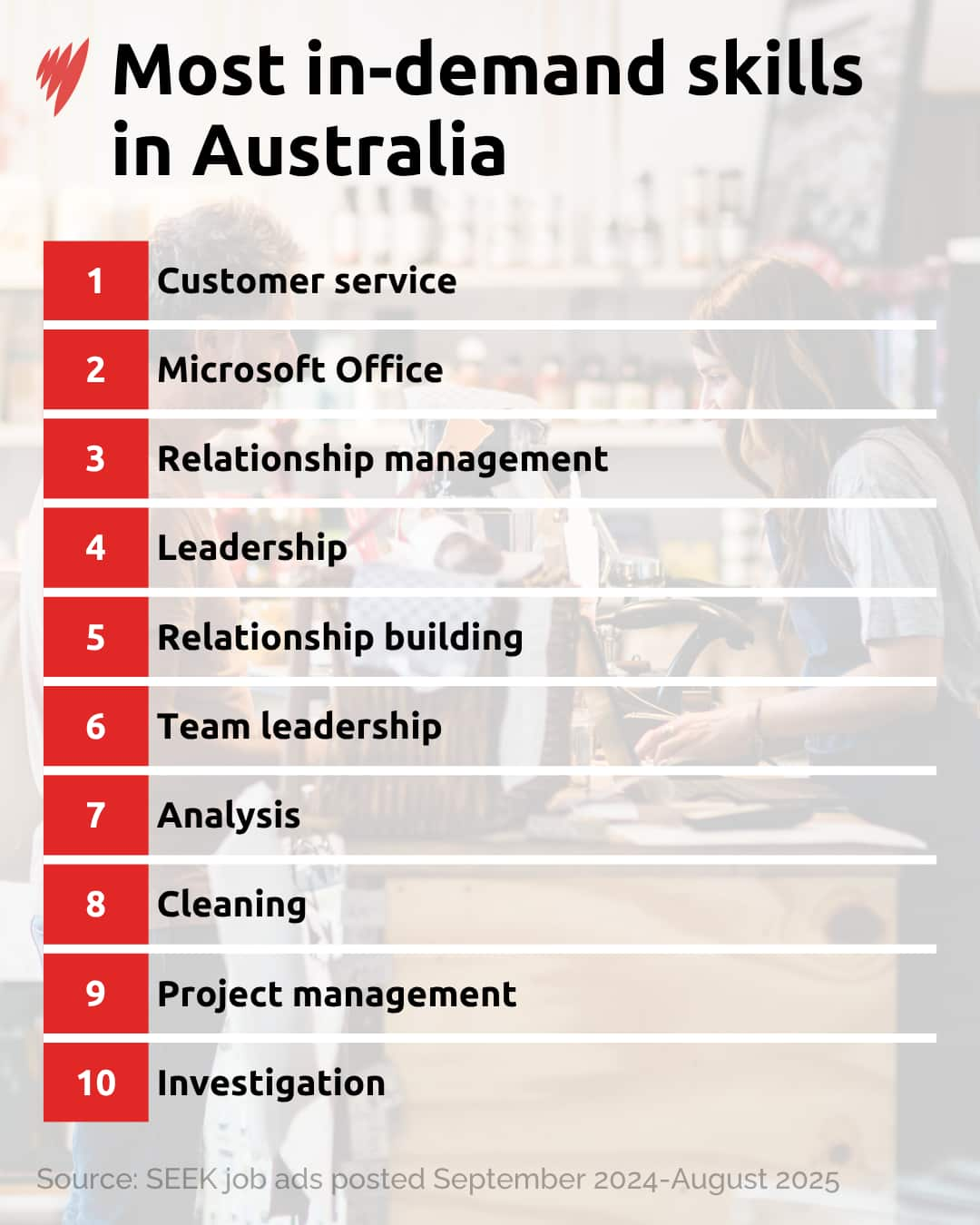Looking for a new job can be a long and demoralising process.
Between job ads telling you how many people have already applied for your dream role, getting generic rejection emails (if any), and finding out after a lengthy interview process that an internal candidate has been hired, it can start to feel like you'll never succeed.
One thing that can help you stand out in such a competitive job market is possessing skills that are in demand — and new analysis has revealed what they are.
The 10 most in-demand skills in Australia
Using data from job ads posted in the 12 months to August 2025, employment listings platform SEEK has compiled the 10 most-requested skills from Australian recruiters.
Customer service was the most in-demand skill for employers across industries during that period.
It wasn't just a valued skill in the industries you'd expect, such as retail, administration support, and hospitality, but also in the banking and financial services, healthcare and medical, and Information and Communication Technology sectors.

Proficiency in Microsoft Office was the second-most in-demand skill across industries, while person-centred skills, including relationship management, leadership, relationship building, and team leadership, also rated highly.
Analysis, cleaning, project management, and investigation rounded out the top 10.
Skills that are considered qualifications, such as driver's licences and workplace health and safety certifications, weren't included in SEEK's analysis.
What do the findings tell us?
While there are increasing concerns around the use of AI in workplaces and potential job losses, SEEK's analysis suggests there's still strong demand for skills that only people possess.
"As tools and technology continue to transform the way we work, we can see that Aussie employers are prioritising human skills, or what can be known as 'power skills'," Kylie Pascoe from SEEK's Customer Insights and Research team said.
"Businesses are looking for people who can communicate effectively, build strong relationships, and lead teams with empathy and clarity to do great work and make the most of new technology."
If you don't already have these in-demand skills, developing them through upskilling, training, or hands-on experience can help you stand out in the job market, she said.
Ensuring your skills are listed prominently on your resume and job site profiles is also "really important" in helping recruiters assess if you're the right fit for any role you apply for, Pascoe added.
How to demonstrate your job skills in an interview
If you get to the interview stage of the hiring process, you'll typically be asked to give real-life examples of how and when you've used certain skills that are relevant to the role you've applied for.
One way to do this effectively is by using the STAR method to structure your responses.
The STAR method is broken down into four parts: situation, task, action, and result.
To provide context for your example, describe the situation that took place.
Then talk about what your task was in the situation, provide details about the action you took to resolve the situation, and finish by describing the result of that action.
For the latest from SBS News, download our app and subscribe to our newsletter.

